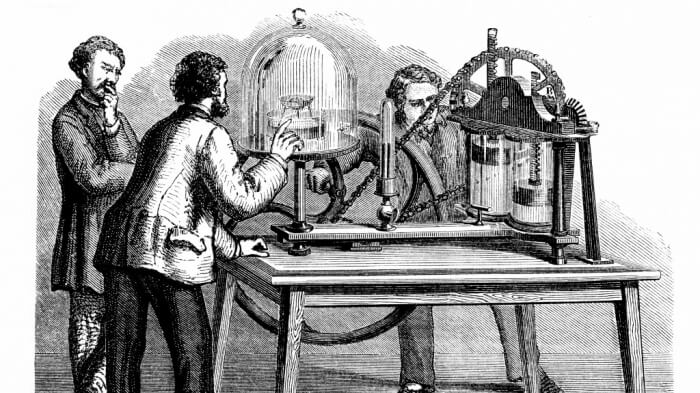Some Surprisingly Interesting Facts About Intellectual Property
Dr Jackie Maguire is celebrating 12 years since founding Coller IP, which focuses on protecting, valuing and commercialising intellectual property. Here she shares IP insights she says often surprise entrepreneurs.
Dr Jackie Maguire is celebrating 12 years since founding Coller IP, which focuses on protecting, valuing and commercialising intellectual property. Here she shares IP insights she says often surprise entrepreneurs.
Some Surprisingly Interesting Facts About Intellectual Property
Dr Jackie Maguire is celebrating 12 years since founding Coller IP, which focuses on protecting, valuing and commercialising intellectual property. Here she shares IP insights she says often surprise entrepreneurs.

One of the main traps that start ups fall into is considering IP too late in the journey. With over 80% of most companies’ value now stemming directly from intangible assets it is something to start thinking about as soon as you have a business idea – many businesses think it is something that can be considered at a later date, and are surprised to find that this can lead to all kinds of difficulties.
(1) Startups need to think about IP right from the beginning
In fact, many start-ups still don’t think about IP (or their wider intangible assets) until “the horse has bolted”. We unfortunately see many start-ups that have lost their brand name and domain names because they have not realised that registration at Companies House doesn’t automatically secure rights to use their trademarks and brand.
When someone else has already registered the mark with the registration body it is difficult to then claim that the mark really belongs to your company. Even worse, many companies inadvertently infringe registered trademarks because they have not checked the register before they start trading.
It is not just the potential damages that they risk paying, it is the costs of rebranding, signage and printing and the reputational damage or loss of reputational capital that ensues. We see some large organisations that have developed through rapid organic growth in this category too.
(2) Your intangible assets might be greater than you realise
Intellectual property provides you with rights that protect your products, brand name and services with patents, trademarks, copyright and so forth and all these have a value.
The people-based assets of a company – for example, key skills, know-how and other processes, such as the way your company does business, also have a value, as do assets such as relationships, branding and reputation which provide the route to commercialisation. A tangible monetary value can be assigned to these assets.
(3) Businesses need to avoid leaking their IP rights
Technology start ups are often so driven by the excitement of progressing an inventive idea, and so keen to take it to market that they don’t stop to do the necessary due diligence.
There are still companies – both large and small - that are disclosing their inventions and ideas – perhaps when discussing collaboration or standards with other companies, or at exhibitions and conferences - before patent or design applications are filed – this “leakage” means that the company may never be in a position to control its IP rights. A chance word at the wrong time could lead to serious losses.
(4) Startups need to have a full overview
Whilst some start ups may seek to apply for IP protection, it is not often from a full perspective of all the technical, legal and commercial angles necessary.
Very often scientists and developers will know where the respective R&D and product competition lies – however they overlook the IP competition – that is the design and patent applications that have already been filed that are not yet evident in the literature or marketplace.
This competing IP is often a real threat – not just to the success of the start-ups product, but also to the potential for infringement and freedom for the start up to actually produce their product.
(5) Inventors need to be IP cost-aware
Single inventors and small start-ups often do not investigate the full cost of patent ownership and exploitation. They begin filing a patent and then decide that they cannot afford the costs of continuing the process and seek to sell the invention during the patent application stage.
Typically the market is not open to acquiring single patents at an early application stage, so the inventor faces the option of having a very limited patent coverage to keep costs down with the consequential limited market, abandoning the patent application or seeking third party investment with consequential encumbrance from the third party.
Patents following the standard processing route can take three to five years to reach the stage of a fully granted patent. Inventors often do not realise that they might have to hold an application for that length of time before they can consider selling the patent.
(6) Don’t assume you are automatically protected when you start to trade internationally
Each country has different processes and methods for protecting IP and the pitfalls in obtaining IP protection in each country also vary. In Europe, a system operates to provide a method of protection across the EU states, thereby making it more streamlined to obtain patent protection.
In the EU, different trade restraints apply, and it is especially important to consider competition law – which covers the free movement of goods around the EU and the avoidance of the abuse of a dominant position in the market – when planning your IP strategy.
Not all countries recognise IP rights in the same way as in Europe and in the US. India, China and Russia their IP laws operate very differently from those in the West.
(7) Remember that IP needs to be reviewed regularly
Just as companies are not static, neither is IP. It can pay dividends for companies to undertake a thorough review of their IP portfolio, as the company grows and changes, to determine what it is worth keeping in terms of intellectual property for further development and commercialisation, and what it might be better to sell or lease.
And patent portfolios need to be reviewed on a regular basis to ensure that as organizations and legislation change, full protection remains in place.
(8) IP can be a tradeable asset including a vehicle to raise finance
Together with the acceptance that there are valid and objective evaluation methods that can be properly applied to determine the value of intellectual property, has come the increasing acceptance of IP as a tradeable asset.
In order to use IP assets as collateral to obtain finance, organisations need to be able to prove they have a cash value which is lasting, and have a realisable market value.
All this depends on a properly established valuation. An option for raising finance, especially for firms with limited resources, is to sell IP rights to a company pension trust fund and buy them back under a long-term leasing arrangement.
This also ensures that even if the business runs into hard times, the IP remains secure within the pension trust fund.
Thanks for signing up to Minutehack alerts.
Brilliant editorials heading your way soon.
Okay, Thanks!

